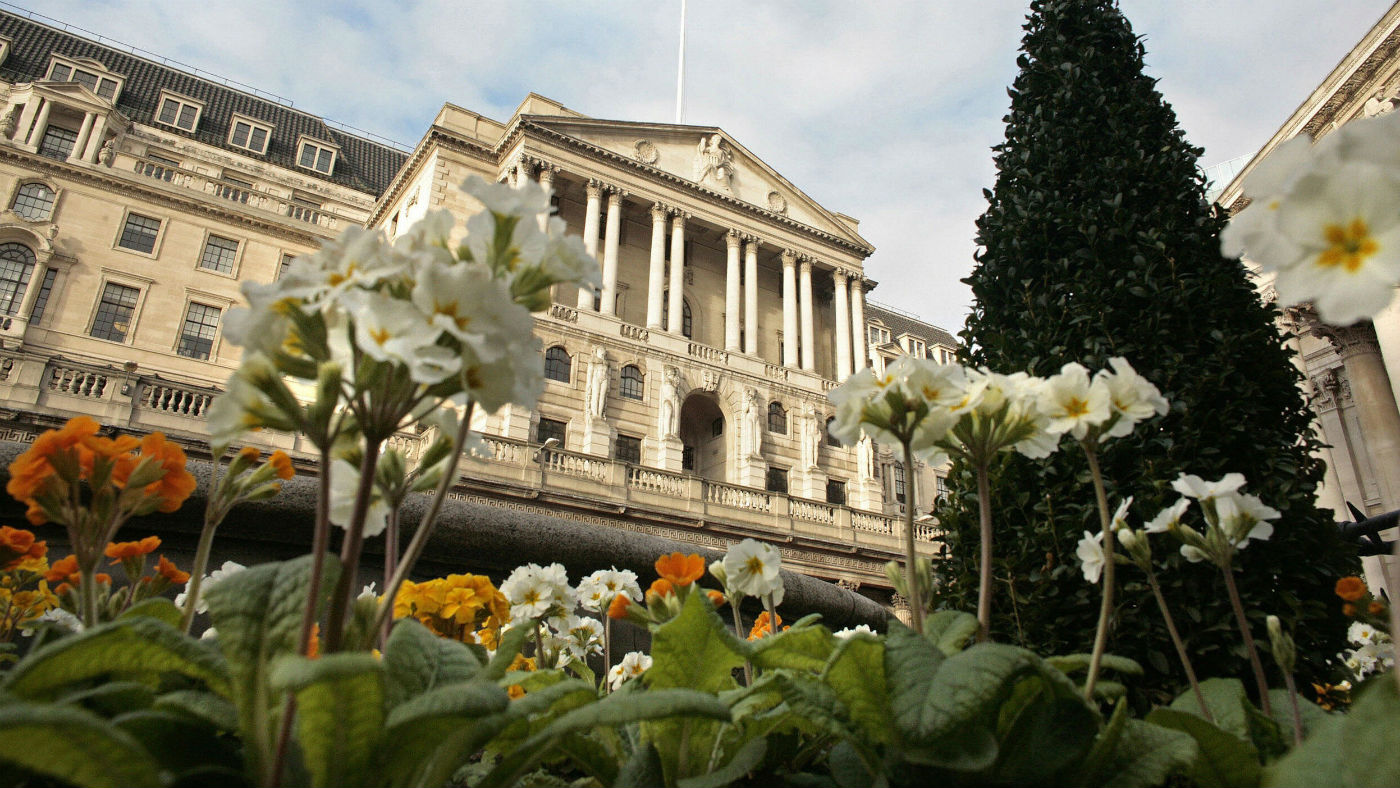Bank of England ‘should go green’
Positive Money report urges bank to offload fossil fuel assets and invest in low-carbon economy

A free daily email with the biggest news stories of the day – and the best features from TheWeek.com
You are now subscribed
Your newsletter sign-up was successful
The Bank of England should do more to combat climate change by offloading fossil fuel assets and investing in a low-carbon economy, green campaigners say in a new report.
Research group Positive Money argues the Bank’s programme of quantative easing (QE) – effectively printing billions of pounds to buy up debt and lower interest rates – has disproportionately helped carbon-intensive companies that are polluting the planet.
Researchers point specifically to the energy sector, where the Bank has been restricted to buying debt from oil and gas companies, while purchasing none from renewable providers. It also cities the amount of money poured into the financial system at the expense of the so-called “real economy”.
The Week
Escape your echo chamber. Get the facts behind the news, plus analysis from multiple perspectives.

Sign up for The Week's Free Newsletters
From our morning news briefing to a weekly Good News Newsletter, get the best of The Week delivered directly to your inbox.
From our morning news briefing to a weekly Good News Newsletter, get the best of The Week delivered directly to your inbox.
Positive money says that Bank’s mandate to secure financial stability “looks incoherent over time unless it considers the long-term viability of the economy” and argues instead for ‘green QE’ to ensure the Bank of England’s mandate is “hardwired for sustainability and climate change”.
One of the most controversial proposals set out by the group is for ‘overt monetary financing’, whereby the Government prints money to spend directly on green projects.
“This approach is illegal under the Lisbon Treaty,” notes The Independent, “but the UK will not be bound by this once it leaves the EU.”
Last year Norway’s $1 trillion sovereign wealth fund announced it was taking to steps to divest entirely from its fossil fuel portfolio and the Swiss and Dutch central banks already look at environmental, social and governance criteria when considering some investments.
A free daily email with the biggest news stories of the day – and the best features from TheWeek.com